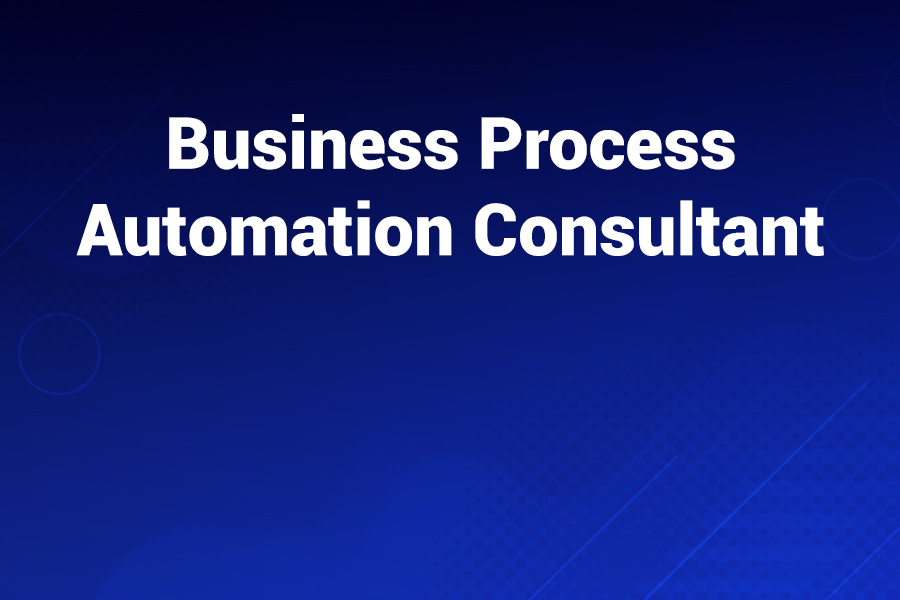- Home
- Services
- PedroVazPaulo Coaching
- PedroVazPaulo Marketing Consulting
- PedroVazPaulo Real Estate Investment Consulting
- PedroVazPaulo Operations Consulting
- PedroVazPaulo Entrepreneur Support
- Pedro Paulo Business Consultant
- PedroVazPaulo Executive Coaching
- PedroVazPaulo Business Consultant
- PedroVazPaulo Strategy Consulting
- PedroVazPaulo Wealth Investment Consulting
- Blog
- About
- Contact

In the fast-paced and competitive business world, staying ahead requires constant adaptation to new technologies, market trends, and consumer expectations. This is where a business transformation consultant comes into play. These professionals collaborate with organizations to guide them through transformations, whether digital, cultural, or operational. They analyze current business practices, identify inefficiencies, and develop strategies to improve processes, enhance efficiency, and drive growth. By leveraging their expertise, transformation consultants help businesses navigate complex changes and achieve their goals. Their role ensures companies remain agile, competitive, and ready for the future. In this article, we’ll explore the key responsibilities of a business transformation consultant, how they contribute to organizational success, and why businesses rely on their expertise to stay ahead in an ever-evolving landscape.
What Does a Business Transformation Consultant Do?
A business transformation consultant helps organizations improve their operations by analyzing business processes, recommending changes, and implementing digital solutions. Their expertise in strategy, change management, and technology integration allows businesses to adapt to market changes, enhance efficiency, and achieve long-term growth. They guide companies through the transformation process, helping them stay competitive in an ever-changing digital landscape.
The Role of a Business Transformation Consultant
A business transformation consultant plays a pivotal role in reshaping an organization’s structure, processes, and strategies. They begin by understanding the company’s vision, goals, and current operations. This analysis enables them to identify key areas for improvement and create actionable plans for transformation.
Their work often involves collaborating with leadership teams to set clear objectives and timelines. Consultants may also assess the existing workforce, technology infrastructure, and business culture to uncover potential obstacles. Their goal is to ensure that the transformation process aligns with the company’s strategic direction, making the transition as smooth and efficient as possible.
These consultants are typically experts in change management, digital transformation, and organizational design. They may recommend new technologies, streamline workflows, or introduce innovative practices to increase productivity.
By driving transformation, they help companies stay competitive in a rapidly changing market. For example, when considering technology adoption, businesses often face the challenge of choosing the right frameworks and tools. A helpful resource is this article on the pros and cons of React Native, which explores how organizations can evaluate technology decisions as part of their digital transformation journey.
The consultant’s role also extends to monitoring and evaluating the progress of the transformation. They track key performance indicators (KPIs) to measure success and make necessary adjustments. This continuous support ensures the long-term sustainability of the changes made.
Essential Skills and Expertise of a Business Transformation Consultant
A business transformation consultant brings a unique set of skills and expertise to help organizations navigate complex changes and drive sustainable growth. These professionals must possess a combination of strategic, technical, and interpersonal abilities to guide businesses through transformation successfully.
Strategic Thinking and Vision
Business transformation consultants must have a strong ability to think strategically, understanding both immediate needs and long-term objectives of the organization. This forward-thinking vision allows them to develop transformation strategies that align with the company’s overall goals, ensuring sustainable growth. Their ability to foresee future challenges and opportunities plays a critical role in crafting solutions that support ongoing success.
Change Management Expertise
A key component of the business transformation consultant’s role is managing change. They help organizations navigate the complexities of transitioning to new processes, systems, or structures. This involves not only guiding leadership but also ensuring that employees are engaged and prepared for the changes. Consultants must create and implement strategies that make the transition as smooth and efficient as possible, minimizing resistance and maximizing buy-in from all levels of the organization.
Industry Knowledge and Technical Expertise
Consultants often specialize in specific industries, bringing deep knowledge of market trends, technological advancements, and best practices. This expertise allows them to recommend innovative solutions that are not only relevant to the business but also tailored to its unique challenges and opportunities. Their technical proficiency ensures that the right technologies and strategies are implemented for optimal impact.
Strong Communication and Leadership Skills
Effective communication is essential for a business transformation consultant. They must clearly articulate complex strategies in simple terms, ensuring understanding across all levels of the organization. Leadership skills are equally important, as consultants often lead change initiatives, requiring them to inspire and guide teams toward successful implementation.
How Does a Business Transformation Consultant Drive Change?
A business transformation consultant plays a crucial role in guiding organizations through change and ensuring long-term success. They use a structured approach to assess, plan, and implement transformation strategies that align with business goals.
- Identifying Challenges and Opportunities: The first step for a business transformation consultant is assessing the organization’s current state. They identify inefficiencies, challenges, and areas for improvement. Through in-depth analysis of workflows, performance metrics, and market trends, consultants pinpoint where transformation is most needed.
- Developing a Tailored Transformation Strategy: After identifying the key challenges, consultants collaborate with stakeholders to develop a transformation strategy aligned with the organization’s goals. This strategy typically involves process reengineering, integration of digital tools, and a strong focus on shaping the organizational culture to support change.
- Implementing New Solutions and Technologies: Consultants often recommend and help implement new technologies or systems designed to enhance performance and efficiency. This can include automation tools, advanced data analytics platforms, or customer relationship management (CRM) systems, all aimed at driving innovation and improving operational effectiveness.
- Leading the Change Process: Consultants not only design strategies but also lead the change process. They guide teams, conduct training programs, and ensure that new systems and processes are smoothly adopted across the organization.
- Measuring and Adjusting for Success: Transformation is an ongoing effort. Consultants monitor key performance indicators (KPIs) and gather feedback to measure success. If needed, they adjust strategies to ensure that the transformation is both successful and sustainable in the long run.
Business Transformation Consulting Services Offered
Business transformation consultants provide a wide range of services to help organizations successfully navigate their transformation processes. These services are tailored to meet the unique needs of each business, depending on their industry and objectives.
- Digital Transformation: Consultants guide businesses through the adoption of digital technologies such as cloud computing, artificial intelligence, and automation tools. These technologies help improve operational efficiency and enable companies to stay competitive in a rapidly changing environment.
- Organizational Design and Culture Change: Transformation consultants assist in restructuring organizations, aligning teams with new goals, and fostering a culture that embraces change and innovation. This helps companies adapt to evolving market demands and enhance internal collaboration.
- Process Improvement and Efficiency: Consultants analyze existing workflows and identify inefficiencies. They recommend and implement strategies to streamline operations, reduce costs, and improve performance, ensuring businesses operate more effectively.
- Leadership Development and Coaching: To ensure successful transformation, consultants provide leadership coaching. They help managers guide their teams through the change process and develop the necessary skills to achieve the desired outcomes.
The Impact of Business Transformation Consulting on Company Growth
The impact of business transformation consulting extends beyond implementing changes. It significantly influences a company’s ability to grow and thrive in today’s competitive business environment. Consultants help businesses evolve by improving internal processes, adopting new technologies, and fostering a culture of continuous improvement.
Increased Efficiency and Cost Savings
One of the primary benefits of business transformation consulting is the ability to streamline operations and reduce inefficiencies. By optimizing internal processes and leveraging digital tools, consultants help businesses cut costs and improve efficiency. This not only boosts productivity but also directly contributes to profitability, allowing companies to allocate resources more effectively.
Enhanced Customer Experience
A successful transformation often leads to an improved customer experience. Transformation consultants help organizations create more efficient, customer-focused strategies, which in turn help build stronger brand loyalty. A better customer experience attracts new customers and strengthens relationships with existing ones, driving long-term growth.
Greater Innovation and Competitiveness
Business transformation consultants help organizations stay ahead of the competition by driving innovation. By introducing new technologies and processes, they ensure that businesses remain agile and competitive in an ever-evolving market.
Improved Employee Engagement and Retention
Transformation initiatives that align with employee values and create a positive work environment lead to higher job satisfaction and retention. Consultants help businesses foster a culture that embraces change, motivating employees to contribute to the company’s success.
Conclusion
A business transformation consultant plays a critical role in helping organizations navigate complex changes. They bring valuable expertise in strategic thinking, change management, and industry knowledge, enabling companies to implement effective transformation strategies.
Whether it’s through process improvement, digital adoption, or cultural shifts, these consultants help businesses stay competitive and achieve long-term success. If your company is looking to evolve and grow, partnering with a business transformation consultant could be the key to unlocking your potential and driving positive change.
FAQ’s
What qualifications do business transformation consultants need?
Business transformation consultants typically have experience in business or change management. They often hold degrees in business-related fields and certifications in project management or lean methodologies.
How long does a business transformation project take?
The duration of a business transformation project varies based on complexity, ranging from a few months to several years, depending on the company size and scope of changes.
Can small businesses benefit from a business transformation consultant?
Yes, small businesses benefit by improving efficiency, adopting technologies, and scaling operations, helping them stay competitive and grow in the market.
What industries can business transformation consultants work in?
Consultants work across industries such as finance, healthcare, manufacturing, retail, and technology, helping businesses from various sectors achieve strategic improvements.
How do business transformation consultants measure success?
Success is measured using KPIs like cost reduction, operational efficiency, customer satisfaction, and revenue growth to gauge the effectiveness of transformation strategies.






